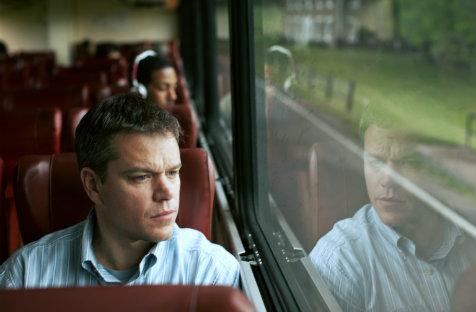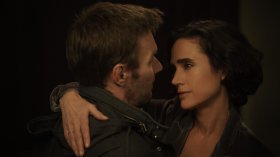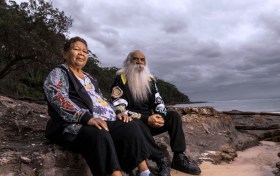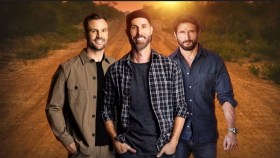Gus Van Sant’s career continues to surprise. His features careen from avant-garde and indie in style to mobilising yet mainstream in content. Hits have arisen on either side of the divide: cult classic Drugstore Cowboy and Palme d’Or recipient Elephant on one side, and Oscar winners Good Will Hunting and Milk on the latter. Promised Land belongs with his more accessible work in both approach and impact. The first fictional film to contemplate the consequences of hydraulic fracturing – or fracking – for natural gas, it proves topical, timely and thoughtful.
Steve Butler (Matt Damon, Margaret) is a rising star at Global Crosspower Solutions, renowned for his winning ways with rural landowners. With his partner Sue Thomason (Frances McDormand, Moonrise Kingdom), he travels to Pennsylvania to convince the residents to relinquish drilling rights on their properties; cash is his motivator but genuine concern for rebuilding farming communities is the key to his powers of persuasion.
Steve’s efforts unravel when a local science teacher (Hal Holbrook, Lincoln) and an opportunistic environmentalist (John Krasinski, TV’s The Office) question the long-term repercussions of fracking.
Damon and Krasinski jointly scripted the adaptation of Dave Eggers’ (Where the Wild Things Are) story, with the screenplay being Damon’s third (after Good Will Hunting and Gerry) and Krasinski’s second (with Brief Interviews with Hideous Men being his other screenplay credit). It follows that their well-acted interplay is Promised Land’s strongest aspect, capitalising upon their everyman appeal. Although opposed in their opinions on fracking, their characters are simply good men in bad situations. A love triangle with Rosemarie DeWitt (Your Sister’s Sister) solidifies their commonality; each man is a different side of the same, imperfect coin.
However, the adversarial duo never merely play to type; instead, they shrewdly use audience familiarity with their screen personas to highlight not only the similarities between the sympathetic men, but the complexity of the situation they find themselves in. Neither is just right or wrong, but part of a conversation that must continue in the wake of increased demand for natural gas, even if the film’s ideological basis and narrative impetus – requisite emotional developments and moments of redemption included – are sometimes in direct competition.
Van Sant’s low-key direction is agreeable and observational, never sacrificing his protagonists or actors for the stake of the story. Although Gasland-esque advocacy is always evident, so too is earnestness in essaying the conflicted characters and sympathy for those caught in the middle, as he crafts a gentle but absorbing drama. Linus Sandgren’s (The Palace of Light) picturesque cinematography and Danny Elfman’s (Hitchcock) subtle score match the elegiac mood. Though it meanders towards its conclusion, Promised Land is sincere in its ambitions, and involving in its crisis of conscience.
Rating: 3 ½ stars out of 5
Promised Land
Director: Gus Van Sant
USA, 2012, 106 min
Rated M
Transitions Film Festival, Melbourne
www.transitionsfilmfestival.com
17 – 20 February
Actors:
Director:
Format:
Country:
Release:





